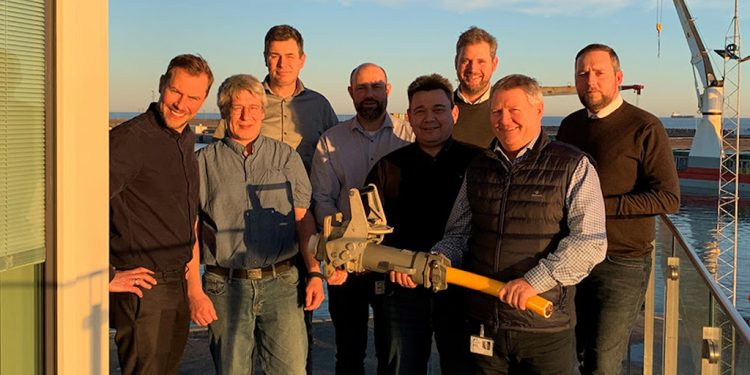The Port of Skagen, Denmark’s Pelagic Producer Organisation (DPPO) and the fishing vessels Lingbank L-379 and Asbjørn HG-265 have entered into a new collaboration towards the fishing sector’s energy transition.
The aim is to establish a shore power plant to supply the fishing vessels with green power during high-energy discharging operations and maintaining catches at chilled temperatures while in port.
This entails refit work to the vessels in question so they can receive power from the new installation
DPPO director Esben Sverdrup Jensen highlighted that the initiative enabling the use of electricity for cargo cooling and unloading operations is a significant departure from relying on each vessel’s own engine power. DPPO is working to operate climate-neutral pelagic fishing by 2040 at the latest.
This power supply from shore is expected to reduce the Danish pelagic fleet’s annual CO2 emissions by 5-8%, and is a step towards ensuring climate-neutral herring and mackerel for consumers by 2040 at the latest.
Skagen Port director Willy Hansen stressed the importance of the project for the port, as it solves the ‘chicken and egg’ dilemma.
The collaboration ensures that the investments in both the shore power plant and the conversion of the vessels take place in parallel. He commented that the Port of Skagen would have difficulty investing in the facility if there was no certainty that the vessels would be able to accept the supply, while fishing companies would be reluctant to invest systems on board vessels if the necessary supply was not available at the dock.
As of 1st February, the Port of Skagen is exclusively providing and using green power, an initiative which, together with the establishment of the shore power facility, fits into the port’s sustainability strategy. With the establishment of the new facilities and ships that are ready to receive power, this will be a significant reduction in noise and emissions in the port.
The new collaboration is the start of a process that supports the green transition in the fishing industry, and it is expected that many more fishing vessels will have to be rebuilt in the long term. The project, which is partly financed by EU funds from the European Maritime, Fisheries and Aquaculture Fund (EHFAF) as well as national funds, is part of the Green Transition to Fisheries initiative administered by the Danish Fisheries Agency.
The Power to the Pelagic Fleet – Zero Emissions at the Quay initiative spans two years from January 2024 to December 2025, with total costs of DKK 5.7 million.









